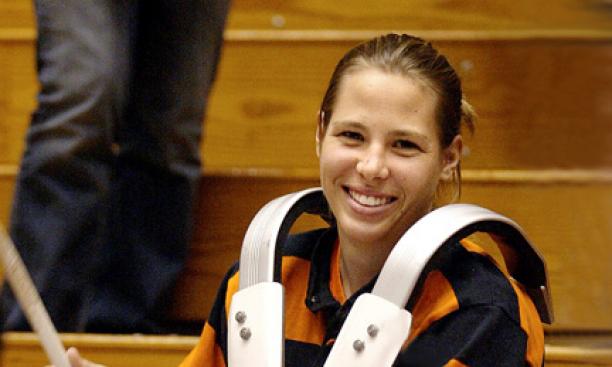
A look at 'computing in the cloud'
When services run on a Web browser and store information in the provider's data center, technology experts refer to the setup as "computing in the cloud" - keeping data on remote servers instead of on the user's computer. E-mail services such as Hotmail and G-mail are among the most common examples, and other applications are attracting users who want to engage friends on social networks, manage personal finances, or store photos, documents, or spreadsheets. But what does this mean for privacy and security? Who owns the data in the cloud? Who controls how it is used? On Jan. 14 and 15, experts from academia, industry, law, and politics gathered at Princeton to examine some of the open policy questions in "cloud computing" at a workshop organized by the University's Center for Information Technology Policy and sponsored by Microsoft.
Panelists offered a range of opinions on controversial topics. In a discussion of possession and ownership of data, Tim Lee, an adjunct scholar at the Cato Institute, proposed that sharing personal information is "a prerequisite to any useful online service," and users make informed tradeoffs. For instance, G-mail users have been willing to accept Google's practice of scanning e-mails for advertising purposes because they like the product and the extra storage space that comes with it. But Marc Rotenberg of the Electronic Privacy Information Center questioned whether users truly understand the privacy implications of using G-mail or even accepting cookies on their Web browsers. Much of privacy, he argued, is about transparency, and Web companies are not being transparent about how they are using the information they collect.
Other panels in the two-day workshop covered security, public engagement, and future applications for cloud computing. The audience was filled with open laptops, and some participants blogged about the discussions, including Luis Villa, who commented on wesabe.com's "data bill of rights"; Khürt Williams of Island in the Net, who posted his notes and comments; and Chris Tengi, an infrastructure operations analyst and manager for Princeton's computer science department, who reviewed the opening remarks and the first panel discussion.
UPDATE (1/17/08): Video of the introductory remarks by engineering dean H. Vincent Poor *77 and CITP director and computer science professor Ed Felten is available on YouTube, courtesy of UChannel.
Coming soon: Princeton's most influential alumni
The Jan. 23 issue of PAW will feature a list of the University's most influential alumni, as chosen by a panel of seven faculty members and an alumnus. The list includes U.S. presidents and Nobel laureates, as well as some notable contributors to medicine, philanthropy, architecture, education, and several other fields. To preview the coming issue, The Weekly Blog has disguised the names of six alumni from the list by creating anagrams, transposing the letters in their names to form other words or phrases. So for instance, James Madison, Class of 1771, could be rearranged to read "Join a mad mess." Join our mad mess by decoding the anagrams below, and e-mail your responses to The Weekly Blog. One lucky winner will receive a vintage Princeton Alumni Weekly poster. Answers will be posted on Jan. 23.
Indoor owls, wow! (Class of 1879)
Banjo nerd, eh? (Ph.D. 1936)
Turnover tribe (Class of 1947, MFA 1950)
Hippie funeral (Class of 1771)
Landlords fumed (Class of 1954)
Harder plan (Class of 1955)
The beat goes on

Drummer Hannah Valdez ’11 and the Princeton Band rallied the crowd at men's basketball's Jan. 9 home game against Lafayette. The Tigers led by as many as 18 points in the first half, but the Leopards fought back to win in overtime, handing Princeton its 12th consecutive loss. The Tigers return to action Jan. 27 against Dominican and open Ivy League play against Dartmouth Feb. 1 at Jadwin Gym.
Photo by Frank Wojciechowski
